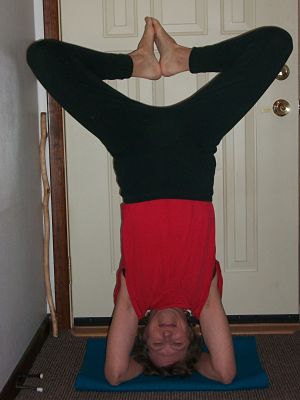Early June. Music turns the street into a pool of sound where we float together in the summer dark, the scent of peonies and roses behind the hot grease from the Belgian waffle tent.
Now the pool drains, street becoming street again, residue of plastic cups, cracked spoons, empty cans. I’m slow to rise, still caught in what was here moments ago.
When I finally stand up, I see a woman folded over in her chair, her head bowed to her knees, and on the pavement below, frayed splotches of red. She is quiet, not a sound, not a movement, everyone walking away from her except a man behind her, talking on his phone, a tall, solid-looking man in a white polo shirt.
I look from one to the other, suddenly thinking of my mother, who died two years ago, how as a girl she had ferocious nosebleeds, how she carried rags to school, how the blood stained her dress before she could stop it, how she wanted only to go home where her mother would press ice to her face.
The man puts the phone in his pocket, turns away from the woman and says to me, his lips barely moving: She’s had breast cancer and now she’s in chemotherapy and she gets these nosebleeds and I don’t know what to do.
He’s crying now and I don’t know what to do either, all the vendors packed up, all the ice gone as the stage goes dark, as the drops of red darken. Carol Tyx teaches at Mt. Mercy University in Cedar Rapids, Iowa. Her work has appeared in Hunger Mountain, Big Muddy, Poetry East, and Rising to the Rim, published by Brick Road Poetry Press. On any given day you might find her cooking with kale, contra dancing, or standing on her head.
Carol Tyx teaches at Mt. Mercy University in Cedar Rapids, Iowa. Her work has appeared in Hunger Mountain, Big Muddy, Poetry East, and Rising to the Rim, published by Brick Road Poetry Press. On any given day you might find her cooking with kale, contra dancing, or standing on her head.
